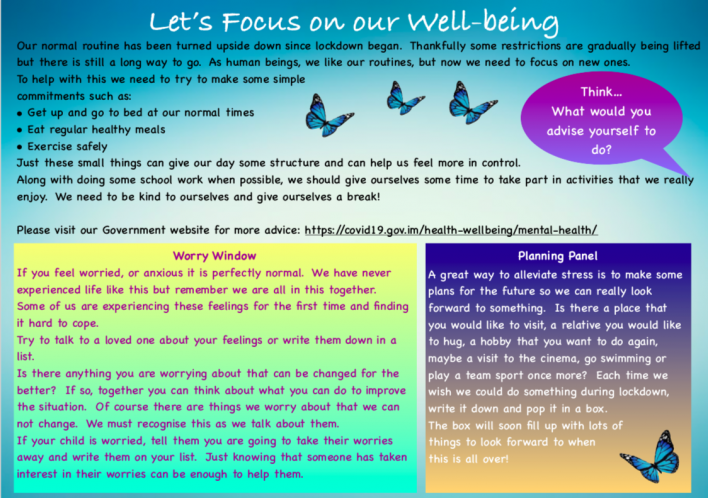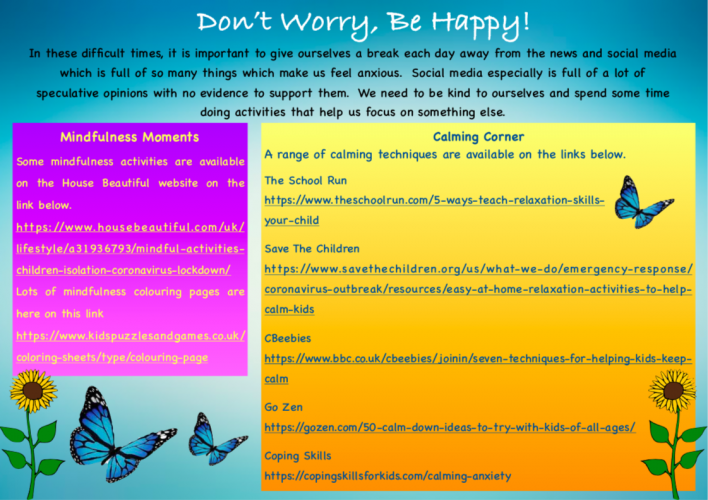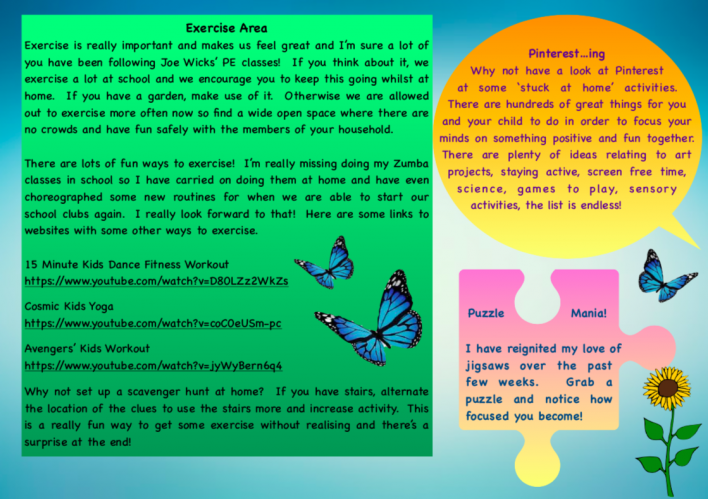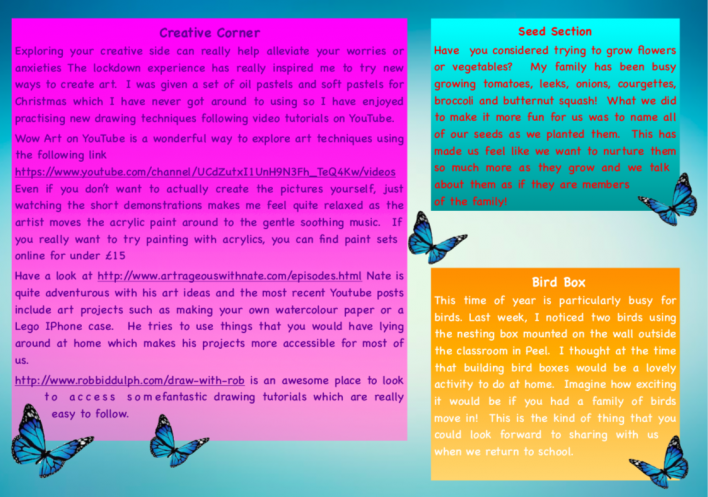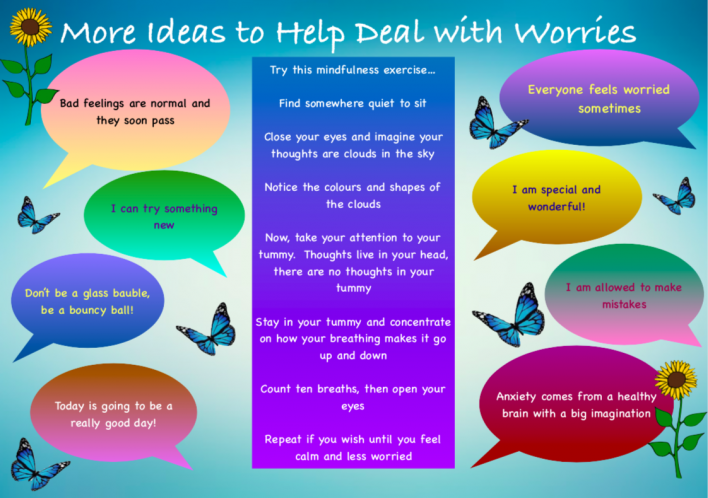It's a really unusual time isn't it? Our well-being is now more important than ever so please take a look at the things on this page. A huge thank you to Mrs Smith for looking after all of our well-being!
How is Your Self-Esteem?
Self-esteem means you mostly feel good about yourself.
Children with self-esteem:
- feel proud of what they can do
- see the good things about themselves
- believe in themselves, even when they don't do well at first
- feel liked and accepted
- accept themselves, even when they make mistakes
Low self-esteem means you don't feel very good about yourself.
Children with low self-esteem:
- don't think they are as good as others
- don't feel liked or accepted
- think more about the times they fail, than the times they do well
- don't notice the good things about themselves
- are hard on themselves and give up easily
Which one seems more like you?
Here are three things to know about self-esteem:
- Self-esteem helps you. It gives you the courage to try new things or make new friends. With self-esteem, you believe in yourself. You know that good things can happen when you try. Self-esteem helps you when things don't go your way. It helps you accept mistakes. If you drop a ball or lose a library book, you don't get too mad at yourself. You just try again. You find a way to do better.
- Low self-esteem can hurt you. It makes children feel unsure. They don't think they can do things well. With low self-esteem, children might not try. They might not go after their goals. They might be afraid to fail. Low self-esteem makes losing seem worse than it is. It makes mistakes seem bigger than they are. It makes it hard to get over things that don't go well. Instead of trying again, children with low self-esteem might give up.
- You can build your self-esteem. Self-esteem can start with things parents say when a child is very young. A parent might tell a baby, "Look what you can do — you're walking all by yourself!" Being told good things makes the baby feel proud and feel good. As you get older, self-esteem can grow. Parents and teachers can let you know they see good things in you. Friends can help you feel liked. You can build your own self-esteem too. Notice when you try new things. Notice when you learn to do something. Did you try a new sport? Did you learn to ride a bike, play a song, or complete a maths problem? Be happy and proud. You can give yourself a little high-five. Yay, you!
How to Build Your Self-Esteem
Try these steps:
- Make a list of the things you're good at. Can you draw or sing? Are you a good reader? Are you good at a sport? Do you tell a good joke? If you're having trouble with your list, ask a parent or friend to help you with it.
- Practice the things you do well. Think of ways you can do some of the things you're good at every day.
- Turn "I can't" into "I can!" Does the little voice in your head tell you "I'm no good at this" or "I can't do it"? Or "It's too hard for me"? That's you thinking badly about yourself. Decide to change your mind. Think, "I can give it a try," "I can handle this." Think, "I'll give it my best." Think, "I'll ask someone to help me do this."
- Try your best. You can feel good about yourself when you give something a good try. When you try hard, your self-esteem will grow.
- Spend time with people who love you. Do things you enjoy with your family. It helps you know you belong and that builds self-esteem.
- Pitch in. Do nice things for your family. Help with meals, clean up, or feed the pet if you have one. When you do kind things, you feel good about yourself. You get to see that what you do means a lot.
There are lots of different things for you to look at in this pack which might help you think about how wonderful and amazing you are. Please have a look through and maybe ask for some help if you need some ideas. You all be surprised at how many fantastic things you can come up with all about fantastic you!!
